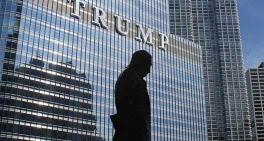Cosby defense team lobs attacks in court of public opinion
U.S. Court News
Jurors weren't allowed to hear testimony that Bill Cosby's chief accuser was once hooked on hallucinogenic mushrooms or had her sights set on becoming a millionaire, but that hasn't stopped the defense from airing the explosive claims about Andrea Constand in the court of public opinion.
With Cosby's sexual assault retrial heading for deliberations this week, the 80-year-old comedian's lawyers and publicists are increasingly playing to an audience of millions, not just the 12 people deciding his fate.
They're hitting at Constand's credibility in the media with attacks that Judge Steven O'Neill is deeming too prejudicial or irrelevant for court, and they're holding daily press briefings portraying Cosby as the victim of an overzealous prosecutor and an unjust legal system.
Cosby spokesman Andrew Wyatt has decried Constand's allegations of drugging and molestation as "fantastical stories" and deemed District Attorney Kevin Steele an "extortionist" for spending taxpayer money on the case.
Lawyer Dennis McAndrews, who's been in court following the retrial, said prominent defendants like Cosby almost always play to the court of public opinion when there's no gag order, but that his team's approach hasn't been "particularly effective or convincing."
"It is so strident, and it is so hyperbolic, I think most people will turn it off," said McAndrews, who prosecuted chemical heir John E. du Pont for murder in 1997 and is not associated with either side in the Cosby case.
O'Neill is expected to rule Monday on what could be the Cosby team's last line of attack in the courtroom: whether jurors can hear deposition testimony that Cosby's lawyers say could have insights into what led Constand to accuse him.
Constand's confidante, Sheri Williams, gave the testimony as part of Constand's 2005 lawsuit against Cosby, which he wound up settling for nearly $3.4 million. Cosby's lawyers said that testimony is vital because Williams is not responding to subpoena attempts.
Related listings
-
State appeals court reinstates California's right-to-die law
U.S. Court News 06/16/2018A state appeals court has reinstated — at least for now — California's law allowing terminally ill people to end their lives.The Fourth District Court of Appeals in Riverside issued an immediate stay Friday putting the End of Life Option ...
-
Egypt refers 28 to criminal court for forming illegal group
U.S. Court News 06/08/2018Egypt's chief prosecutor has referred 28 people to a criminal court on charges including forming an illegal group aiming to topple the government.Sunday's statement by prosecutor Nabil Sadek says the suspects face an array of additional charges, incl...
-
UK Supreme Court criticizes Northern Ireland abortion laws
U.S. Court News 06/06/2018Britain's Supreme Court on Thursday criticized Northern Ireland's strict anti-abortion laws but dismissed a legal challenge.A majority of the court decided that the Northern Ireland Human Rights Commission, which initiated the case, did not have the ...

Any contracts or any transactions can go awry at any time
We know your business means a lot to you and want to understand all the aspects of your business so that we can help you in the best ways possible. We don’t discriminate depending on the size of your company. Our mission statement is to represent all business owners and entrepreneurs by navigating them through the rough waters of business litigation and guiding them to success.
We are attorneys who want to make sure we understand your business objectives and goals before we start providing you with legal counsel individualized to your business. We know what it means to be dedicated to your business. After all, we are a business as well. And just like you, we want to provide the best service we can to our clients.
Any contracts or any transactions can go awry at any time. Sometimes, making important business decisions without legal help from business attorneys could cost you your business.We don’t want you or your business to be misconstrued by anyone. Our attorneys make sure that we communicate with you often to make sure we are giving you the legal guidance you need at all times. We make sure we are responsive in a timely-manner with every single one of our clients to help them identify risks and prevent legal battles before they arise.




